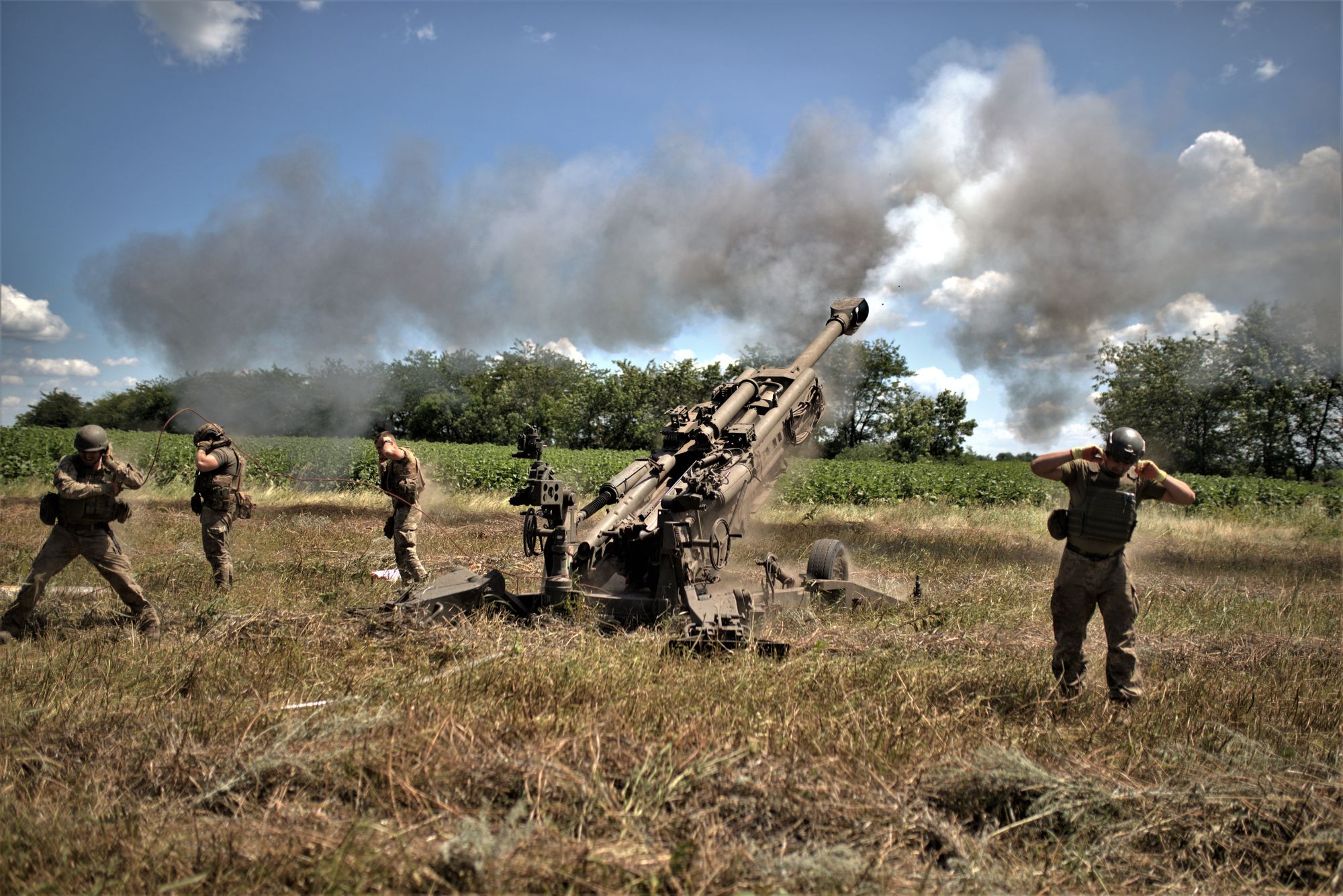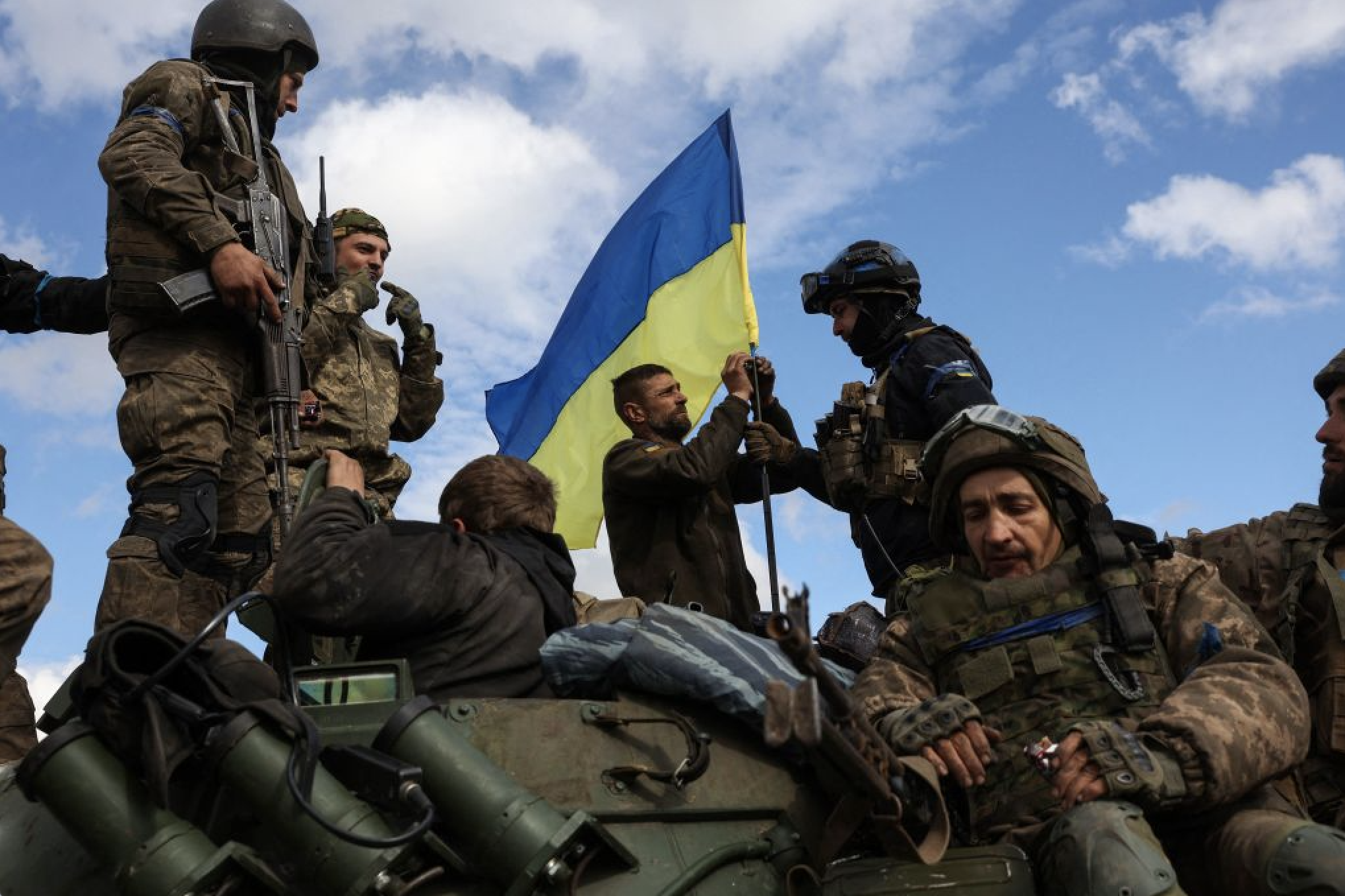Nathan Greenfield: Ukraine’s use of cluster munitions to evict Russian troops is both legal and just

U.S. President Joe Biden’s decision to supply Ukraine with cluster munitions triggered a debate that saw NATO allies, including the U.K., Canada, and Germany, as well as human rights groups, oppose the move. In the U.S., the decision was opposed by right-wing Republicans and the centrist Democratic leadership in Congress, while Republican senators like Lindsay Graham sided with the president.
The arguments against Ukraine using cluster munitions betray a naivety, if not a disingenuousness, about the hard truths of military history.
After the Germans used chlorine gas against the Canadians and French during the Second Battle of Ypres in April 1915, political and military leaders, as well as the press, excoriated the German high command. Five months later, at the Battle of Loos, the British unleashed around 140 tons of chlorine gas.
During World War II, the Americans were against bombing cities and civilians until they did so themselves after entering the war in December 1941.
The fact that neither Russia nor Ukraine are signatories to the Convention on Cluster Munitions (CCM) matters much less than does the fact that Russia, by using them against Kharkiv, Odesa, and other Ukrainian cities, could not but call forth a like response.
Another argument raised against Ukraine using cluster munitions is their dud, or failure, rate, pegged by the International Committee of the Red Cross at 10-40% – and the fact that unexploded bomblets are small enough to be picked up by civilians.
The 40% figure includes Russian-manufactured cluster munitions; by contrast, American-manufactured cluster munitions have, according to U.S. National Security Advisor Jake Sullivan, a dud rate of 2.5%.
Further, unlike the cluster munitions Russian forces have fired indiscriminately at Ukrainian cities, Ukraine will know exactly where they have been fired and, hence, what patches of land need to be cleared, as the Americans did after the Gulf War.

Legalistic appeals to the CCM also fail.
First, as Sullivan explained during an interview with NBC on July 16, the U.S. and Ukraine’s “moral authority” vis-à-vis cluster munitions comes not from the CCM but rather from the fact that the U.S. is aiding Ukraine against a “brutal, vicious attack by its neighbor,” thus drawing a hard line between Ukraine’s and Russia’s use of the weapons.
Even more importantly, those who make legalistic appeals commit a major category error.
Cluster munitions should be banned, the convention says in part, because their “remnants kill or maim civilians, including women and children, obstruct economic and social development… impede post-conflict rehabilitation and reconstruction, delay or prevent the return of refugees and internally displaced persons… and have other severe consequences for many years after use.” In other words, it focuses on the post-war effects of cluster munitions.
Yet, as Sergej Sumlenny, an international lawyer and the founder of the European Resilience Initiative Center, told me on July 9, “In Ukraine, this is not the case. The civilians are already suffering from the most brutal genocide, and the territories are already full with landmines and unexploded ordnances.”

None of the newspaper accounts of the debates on the CCM’s ratification contain even a single statement by the convention’s architects that refers to how and when Ukraine intends to use cluster munitions; i.e., to defend itself on internationally recognized sovereign Ukrainian territory.
According to the framework outlined last week by the spokesperson of Ukraine’s Tavria operational-strategic group, Valerii Shershen, cluster munitions will be used only for the liberation of Ukrainian territories, and not on Russian territory or densely populated areas.
He explained that they will be used “only in the areas where the Russian military is concentrated, to break through the enemy’s defenses.”
Because the 72 or 88 submunitions spread out over a much wider area than the blast range of conventional artillery rounds, much like shrapnel during World War I, cluster munitions are fitted to attacking troops in trenches. In military parlance, they are a “force multiplier.”
Even as these hard military facts summon up horrifying images of dead men strewn around a blasted trench, we must remember they are invaders – their very presence on sovereign Ukrainian territory is a testament to Vladimir Putin’s violation of international law.
Evicting Russian troops is Ukraine’s undeniable right. For, as Russian soldiers’ war crimes have shown, evicting them is the sine qua non, the essential condition, of the Ukrainian people’s survival, let alone their state.
Ukraine’s plan to use cluster munitions in its own territory to evict the Russians is both legal and just.
Editor’s Note: The opinions expressed in the op-ed section are those of the authors and do not purport to reflect the views of the Kyiv Independent.













